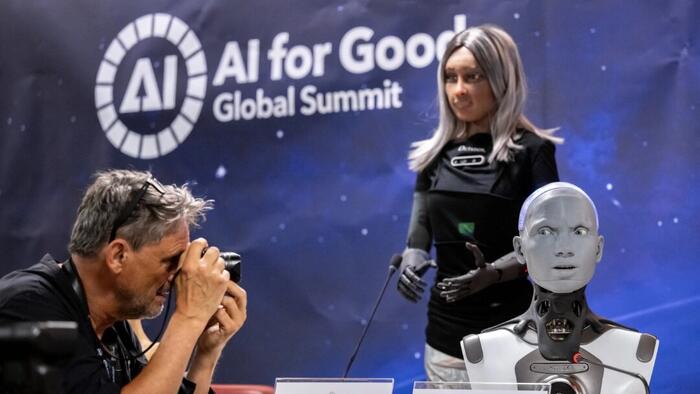


Authroed by Javier Simon via The Epoch Times (emphasis ours),
As artificial intelligence (AI) spreads its tentacles into industries throughout the globe, many wonder whether their jobs are on the chopping block. And it’s not surprising.
Today, it seems like you can do anything with AI. And the world’s biggest companies are pumping billions into this emerging technology.
But despite its rapid development, AI has struggled to replicate interpersonal communication, creativity, and critical thinking. And jobs that require these skills are considered by experts to be less likely to be overtaken by AI.
“While AI can be proficient at handling logical and repetitive tasks, it cannot match the creativity and emotional intelligence inherent in humans,” Smart Forum, a digital services provider for businesses, stated in a blog post. “AI cannot replace jobs that require human intuition, empathy, ethical judgment, emotional depth and physical presence.”
So let’s take a look at some of the fields that could stand strong in the face of the AI job-eating machine.
While AI can contribute to diagnosis and treatment, it simply can’t replace the human touch offered by experienced doctors, nurses, therapists, and psychologists.
In fact, employment of registered nurses alone is expected to grow 6 percent from 2023 to 2033, or faster than the average for all occupations, according to data from the Bureau of Labor Statistics (BLS).
In addition, the BLS expects demand for health care professionals to grow because of an increase in the number of older citizens who tend to require more health care.
Overall, the future seems bright for the health care field—and even AI may not be able to keep up. Here are the median salaries for different members of the health care system, according to the BLS:
Can AI swing a hammer? No, thankfully. Skilled laborers like construction workers, electricians, plumbers, and carpenters rely heavily on hands-on skills, complex problem solving, and critical thinking in real time. This is something AI struggles to mimic.
And it’s a good time for skilled tradespeople. Cities throughout the country are experiencing construction boosts, leading to a spike in demand for skilled laborers. Plus, an aging workforce is creating a hole that these people would need to fill. The job outlook for construction workers between 2023 and 2033 alone is 7 percent, faster than average, according to the BLS. Here are, according to BLS data, the median salaries for different tradespeople:
AI can certainly solve complex math problems and answer your questions about science, history, and much more. But an educator’s role goes beyond simply transferring knowledge.
Teachers strive to develop personal connections with their students in order to understand their unique needs and adapt their techniques accordingly. It’s a very “human” role that AI may have trouble trying to imitate. Plus, the median pay for high school teachers in 2024 was $64,580 per year, according to BLS data.
Sure, AI can write articles and produce graphics and audio. But can it really capture what’s unique to a creative’s mind? The answer is a resounding “No.” That’s why writers, musicians, painters, and others who draw from the mind and heart should not fear the rise of AI.
You may think that feeding every law book into an AI algorithm would make it a good digital lawyer. But the machine lacks the critical thinking skills and acumen that a human lawyer displays in court. And skilled lawyers make a good amount of money. The mean annual wage for a lawyer is $151,160, according to research from the BLS.
Being a good social worker requires empathy, care, and a drive to help people get through their darkest hours. It is human at its core, and AI simply can’t compete on an emotional level. And the field is expected to expand. The BLS estimates a 7 percent growth in employment for social workers between 2023 and 2033, faster than the average for all occupations.
AI can be as revolutionary as it is alarming. Many people worry that their livelihoods could be replaced by machines and complex algorithms. But no matter how advanced AI gets, it likely won’t develop the human touch. Jobs that require interpersonal skills, emotional support, empathy, critical thinking, and complex problem solving are likely to survive the AI revolution.
The Epoch Times copyright © 2025. The views and opinions expressed are those of the authors.
